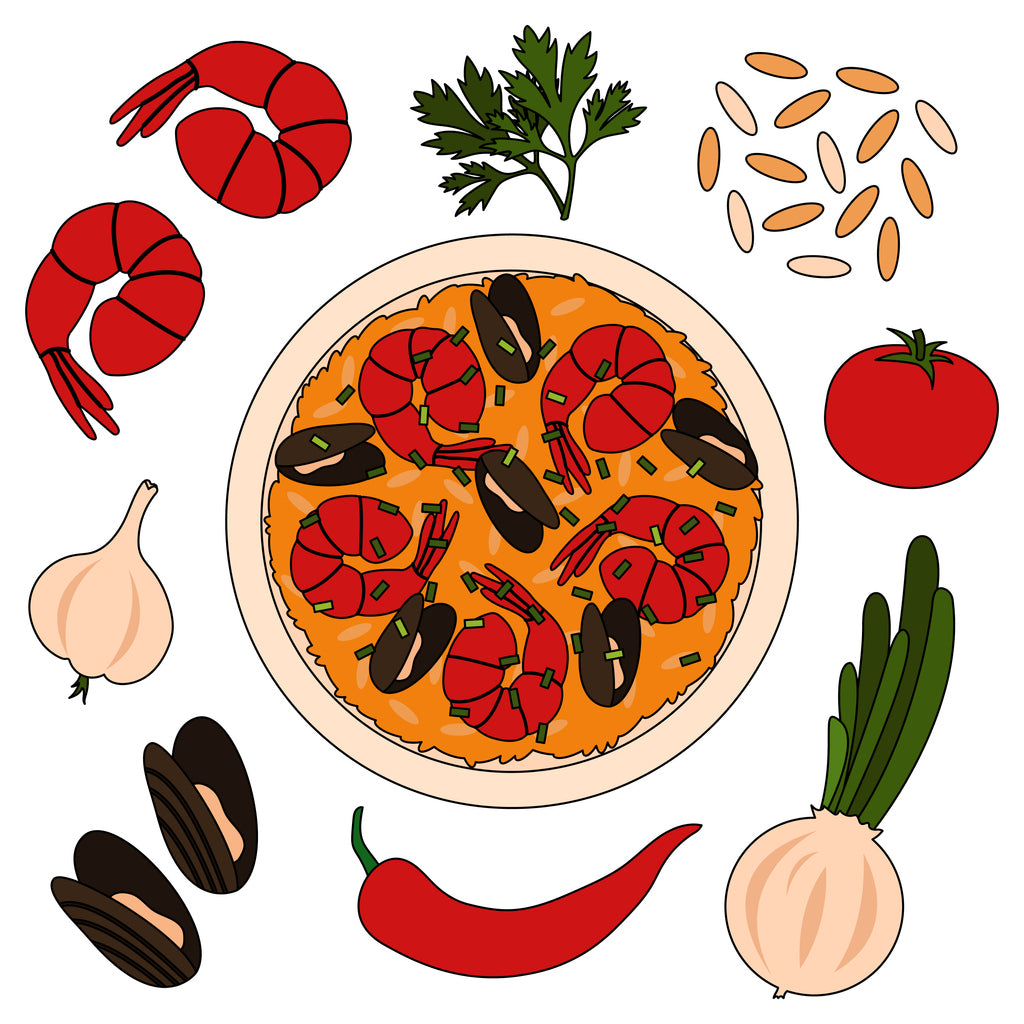Eating for good health
When it comes to maintaining a healthy lifestyle, one of the most important factors to consider is our diet. What we eat has a profound impact on our overall well-being, and can greatly influence our risk for various diseases.
If you're looking for a diet plan that promotes good health and longevity, the Valencia diet is an excellent choice.
Originating from the Mediterranean region, this diet is not only delicious but also packed with nutrients that can benefit your body in numerous ways.
Valencia diet meal plan
The Valencia diet is based on the traditional eating habits of the people of Valencia, Spain. It emphasizes the consumption of fresh, whole foods that are low in processed ingredients and rich in nutrients.
Here's a breakdown of the main principles of the Valencia diet:
1. Fresh fruits and vegetables
Fruits and vegetables are the foundation of the Valencia diet. They are not only loaded with essential vitamins and minerals, but are also abundant in fiber, which aids in digestion and helps to keep you feeling full.
Make sure to include a variety of colorful fruits and vegetables in your daily meals. Some examples of fruits and vegetables commonly consumed in Valencia include oranges, tomatoes, peppers, artichokes, and broccoli.
2. Healthy fats
The Valencia diet promotes the consumption of healthy fats, such as olive oil and nuts. These fats are rich in monounsaturated fatty acids, which have been shown to improve heart health and reduce the risk of chronic diseases.
Swap out butter or margarine for olive oil when cooking, and enjoy a handful of nuts as a healthy snack. Almonds, walnuts, and pistachios are all great options.
3. Lean proteins
Protein is an essential nutrient that plays a vital role in building and repairing tissues, as well as supporting a healthy immune system. In the Valencia diet, lean proteins like fish, poultry, and legumes are preferred over red meats.
Try incorporating more seafood into your meals, as it is a great source of lean protein and omega-3 fatty acids. Grilled or baked salmon, sardines, and mackerel are all excellent choices.
4. Whole grains
Whole grains are a key component of the Valencia diet. They provide a slow and steady release of energy, keeping you feeling satisfied and preventing spikes in blood sugar levels.
Go for whole grain options whenever possible, such as whole wheat bread, brown rice, quinoa, and oats.
5. Limit processed foods and added sugars
The Valencia diet encourages the reduction of processed foods and added sugars. These types of foods offer little nutritional value and can contribute to weight gain and chronic diseases when consumed in excess.
Avoid sugary drinks, snacks, and desserts. Instead, satisfy your sweet tooth with naturally sweet fruits or a small portion of dark chocolate.
Best foods for the Valencia diet
Now that you have a good understanding of the principles of the Valencia diet, let's dive into some of the best foods you can include in your meals:
1. Oranges
Valencia is famous for its delicious, juicy oranges. Oranges are not only refreshing, but they are also packed with vitamin C, fiber, and antioxidants. Incorporate fresh orange juice into your breakfast or enjoy a sliced orange as a snack.
2. Tomatoes
Tomatoes are a staple in the Valencia diet and are used in many traditional dishes. They are rich in lycopene, a powerful antioxidant that has been shown to reduce the risk of certain cancers. Enjoy fresh tomatoes in salads or as a topping for grilled fish or chicken.
3. Olive oil
Olive oil is a fundamental component of the Mediterranean diet, including the Valencia diet. It is a heart-healthy fat that is rich in antioxidants and anti-inflammatory compounds. Use extra virgin olive oil as a dressing for salads or as a cooking oil for light sautéing.
4. Almonds
Almonds are a great source of healthy fats, fiber, and antioxidants. They make for a satisfying and nutritious snack. Keep a stash of almonds handy for when hunger strikes between meals.
5. Quinoa
Quinoa is a gluten-free whole grain that is packed with protein, fiber, and essential amino acids. It is a versatile ingredient that can be used as a base for salads, mixed with vegetables, or served alongside lean proteins.
6. Fish
Fish, particularly fatty fish like salmon, sardines, and mackerel, are rich in omega-3 fatty acids, which have been shown to improve heart health and reduce inflammation. Aim to include fish in your meals at least twice a week for optimal health benefits.
7. Legumes
Legumes, such as chickpeas, lentils, and beans, are excellent sources of plant-based protein, fiber, and various vitamins and minerals. They can be incorporated into soups, stews, salads, or used as a meat substitute in dishes like vegetarian chili or bean burgers.
8. Dark chocolate
Dark chocolate with a high percentage of cocoa (70% or higher) is a guilt-free treat that is rich in antioxidants and may have various health benefits. Enjoy a small piece of dark chocolate as an occasional indulgence.
Takeaway message
The Valencia diet offers a delicious and nutritious way to improve your health and well-being. By focusing on fresh, whole foods and avoiding processed ingredients, you can nourish your body with the nutrients it needs while reducing the risk of chronic diseases.
Incorporate the best foods for the Valencia diet into your meals and embrace a lifestyle that promotes good health.
Find this helpful?...Please Like, Share and Follow @greatermood also check out our other health topics here

